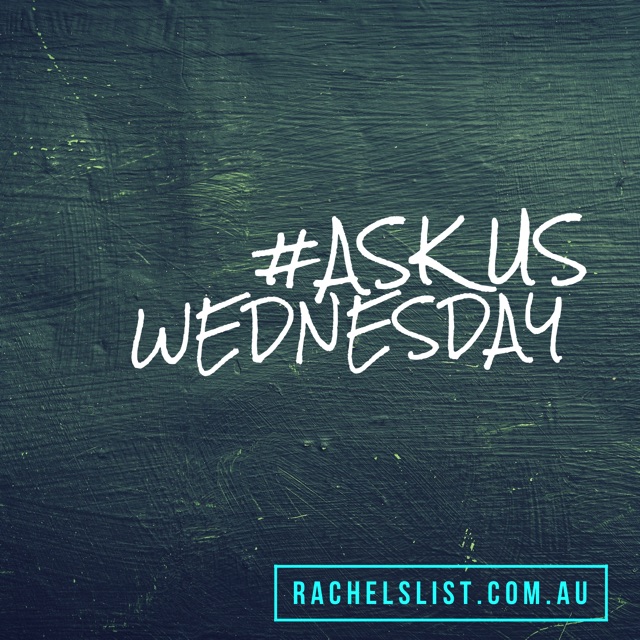

by Rachel Smith
20 April 2016
 I’ve been freelancing a few years now and every time I get slapped with a new contract I freak out that I could be doing more to protect myself, legally. The trouble is I have no idea what I need to be doing and basically just operate on the fly – do my work, do it as best as I can, get paid, move onto the next job. But do you guys have some kind of list about how freelancers can avoid getting into legal hot water? J
I’ve been freelancing a few years now and every time I get slapped with a new contract I freak out that I could be doing more to protect myself, legally. The trouble is I have no idea what I need to be doing and basically just operate on the fly – do my work, do it as best as I can, get paid, move onto the next job. But do you guys have some kind of list about how freelancers can avoid getting into legal hot water? J
We don’t, but I wish we had one! Here are five things I think you can do right now to protect yourself as a freelancer, but PLEASE bear in mind that I’m not a lawyer or accountant so always get advice on legal or financial matters with qualified experts. That said…
1. Have a contract. If you’re working with a client – new or old – it’s smart to nail down the terms in writing of what the project brief is, the deadline and the payment. Stick to the contract and if, God forbid, your house burns down and you can’t complete the project on time, communicate that to the client. Make sure all communication is in writing (email is fine) and keep those emails in a separate folder.
2. Send employer contracts to a lawyer. The contracts doing the rounds from large publishers (News Corp, Bauer, Fairfax, etc) are, to put it mildly, scary – and it’s notoriously difficult to get amendments. The party line is usually ‘It’s our way or the highway’, which sucks. That doesn’t mean you shouldn’t try. At the very least you should try to limit or ‘cap’ liability clauses to a certain amount (like your payment fee for the project), which means in the event of a lawsuit you’d only pay up to that amount, rather than losing your house. A lawyer is essential in helping identify red flags and draft clause changes to take back to the client / publisher.
3. Don’t cut corners. It’s a no-brainer that you won’t, as a professional writer, plagiarise. But it’s also important to double-check with sources, double-check facts and figures from studies. Our post about the essential journalist checklist is definitely one to check out.
4. Operate within a company. Sure, it’s more expensive to set one up (around $2000), but it protects your assets if someone does slap a lawsuit on you. Of course, operating under a company might not be financially worth it if you’re writing about, say, cushion covers, but if you’re covering contentious topics (in, say, finance or medical) it’s definitely something to think about. As a sole trader (which many freelancers are), you have zero in terms of liability protection so be sure to talk to your accountant about the best setup for your situation.
5. Get income protection insurance. We’ll be looking into the types of insurance freelancers need (and are being asked to get) in greater depth in a future post, but on a basic level I think income protection insurance is a great thing to invest in. I always remember the case of a freelance friend of mine who suffered a bad case of RSI and was literally saved by his insurance when he was off work for months and months. Having it can not only keep the wolf from the door (and the rent paid) if you literally can’t work, but it may also protect you if you can’t fulfil a client contract due to ill health. Plus, members of the MEAA might want to look into its Freelance Pro package which includes professional indemnity and public liability insurance.
What do you do to protect yourself as a freelancer?
As well as all of the above, I’d recommend some basic defamation law, especially if you haven’t looked at it since 2006, when the laws changed. Then a smattering of copyright law and maybe contempt law, if you’re dealing with crime/court cases. The Arts Law Centre has free user-friendly resources at http://www.artslaw.com.au/. It also gives free legal advice to artists. If you want a book (or an ebook), I’d recommend ‘The Journalist’s Guide to Media Law (5th ed), by Pearson and Polden. This latest edition also has sections for PR, freelancing and digital media. Please don’t be disheartened. You only need to know the basics to protect yourself and work ‘safer’. Hope these resources help. Disclaimer: I used to teach media law to journalism students at uni. The most important thing I taught my students was when to call the lawyers.
Fantastic advice, thanks for that. I didn’t know about the Arts Law Centre and will definitely check out that book.
Take care with contracts that leave you with all the liability, e.g. along the lines of they will pay you a certain way but if the Tax Office levies a penalty because of it, you are liable to pay the penalty. I encountered this and said I wouldn’t sign the contract, just as I wouldn’t pay someone else’s speeding fine. The clause was dropped.
Good advice Jan, thanks.
The Media Entertainment and Arts Alliance has Freelance Pro, which provides some indemnity.
Thanks Winsome, will amend in the post.